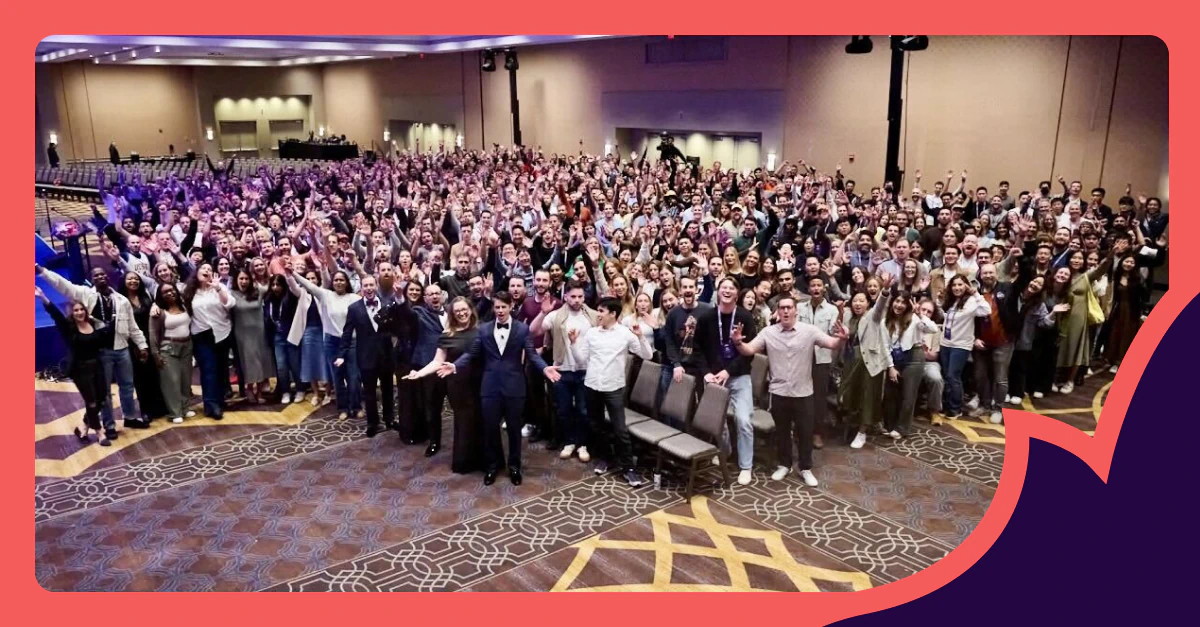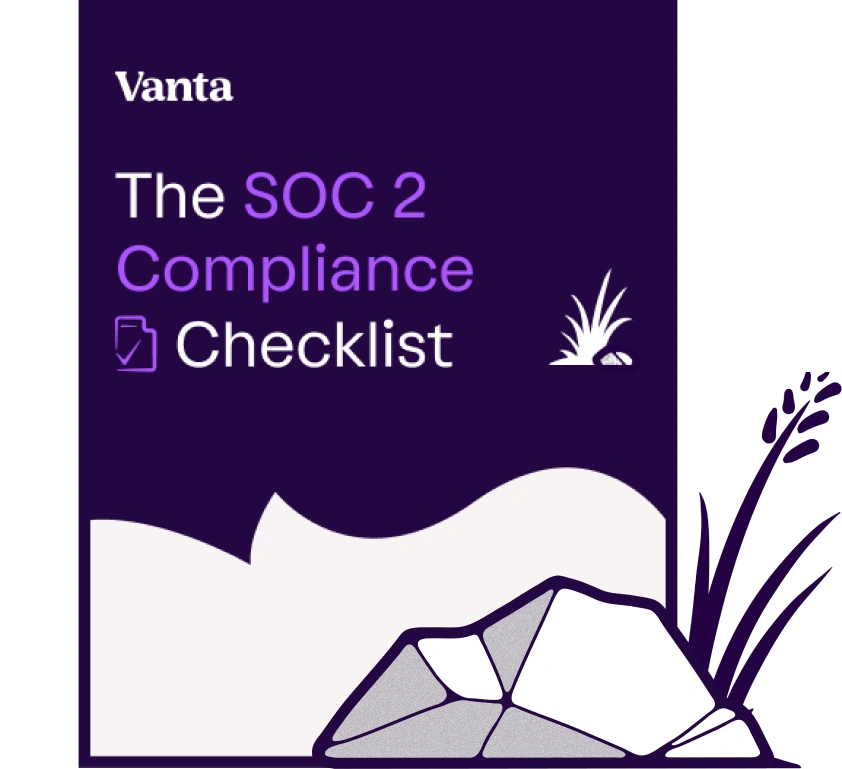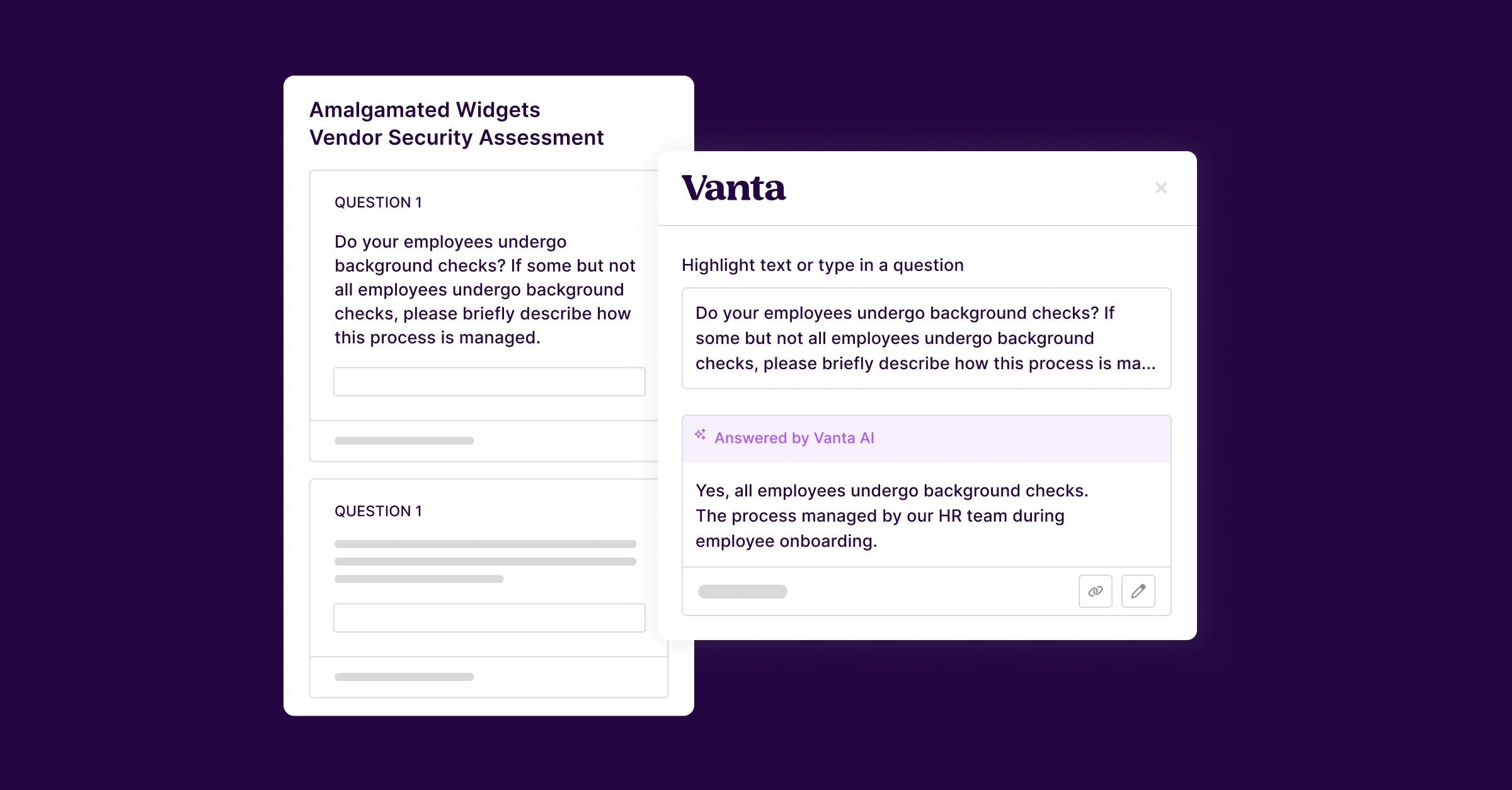Share this article

Seven lessons after seven months in Vanta Engineering
Accelerating security solutions for small businesses Tagore offers strategic services to small businesses. | A partnership that can scale Tagore prioritized finding a managed compliance partner with an established product, dedicated support team, and rapid release rate. | Standing out from competitors Tagore's partnership with Vanta enhances its strategic focus and deepens client value, creating differentiation in a competitive market. |
Starting a new role is always a learning experience—especially when you join a fast-moving, high-growth engineering team like Vanta! Over the past seven months, I’ve gained insights that weren’t entirely new to me, but have been strongly reinforced by my experience. To help others navigate this transition, increase their impact, and refine their leadership approach, I wrote them up below.
Some of these lessons may feel intuitive or even obvious, but internalizing them early can make a massive difference. Whether you're stepping into a new role, growing into a leadership position, or simply looking for ways to be more effective, I hope these insights support you on your journey.
1. People actually want to help—reach out
"Win as one team" isn't just one of Vanta’s principles—the most productive teams feel like more than a set of individuals working on related smaller pieces of work, and at Vanta this plays a massive role in our success. To get going quickly, reach out and build relationships though 1:1s, Slack, or whatever your favorite medium of communication is.
- Don’t struggle in silence—it’s bad for you, your team, and your company.
- Don’t assume—ask and clarify. People will see through unfounded assumptions eventually.
- Get input and data points, but don’t drown in it. Make a decision and keep moving.
2. Focus and do less—make a dent in one thing
Starting at a new role or company can be overwhelming as you’re looking for ways to contribute. Early on, when you don't understand most things, your own impact comes from focusing and doing less.
- Don’t try to feel “fully onboarded” or understand everything before asking questions and pushing on something. Framing is critical here—you don’t want to seem like a “know it all” or that you’re just copying things from your last job.
- Start small to build momentum—as long as it’s directionally aligned with team and company goals, what you’re specifically working on is less important.
- Don’t spin working on that third draft—send the first one and get feedback from your team.
3. You can’t stop shipping
Once you have momentum, don’t lose it! It’s infinitely harder to “restart” if you’re stalled or spinning your wheels versus redirecting energy and momentum. The approach that usually works for me:
- Balance quicker wins (days/weeks) with mid/long-term bets (weeks/months)
- Try to limit work in progress to around one “big” thing with a smaller background task that’s less urgent or critical, but still important
If you're all long-term, you're probably not delivering enough incremental customer value and getting signals to adjust. If you're all short-term, you're likely churning and missing the forest for the trees.
4. Feedback: Build a culture where people push you to be 1% better every day
If you can manage to nail finding (or building!) a team with people who make you better while supporting you, you want them to push you, challenge you, and give you honest feedback without it feeling like an attack or that you’re failing to do your job. That only happens when there’s trust, and you have to work to build it. How? Go back to my first point!
A lot of my approach to feedback was shaped by my first job, and the concepts still resonate with me—the key points being:
- You want to actively seek out feedback from all directions, ideally being specific about a situation or piece of work vs. asking for general feedback.
- Try to fully understand what someone is sharing with you without getting defensive. This is hard, and takes practice!
- Understand that, at some level, all feedback is valid since it’s based on other people’s experience and perspectives.
This doesn’t mean that someone else’s perception and reality are the same thing, but you at least want to understand their perspective. You don’t have to agree with or act on every piece of feedback you get, but get enough and some will start to make sense.
5. You can be too responsive
Growing up, I spent a lot of time on IRC and other async chat tools. So, I feel like I’m fairly good at Slack, despite missing the behavior of email where someone else has to opt you into a specific thread. Chat at work has really amplified this set of problems that can limit your impact:
- People who respond fast are highly valued for that property. We like to be responsive, and we like when people respond to us quickly!
- That dopamine hit from clearing notifications is addictive, and as you start to get added to more and more channels, the cost of doing this becomes more expensive
- The more responsive you are, the less time you have to get deep work done
I’m still working on my answer, but the obvious ones are checking less often, using do not disturb more, and setting expectations with people around focus time—enabling me to hit a flow state for at least 30 minutes, and ideally longer.
6. Hiring: The bar is mostly about potential, not current skills
I have a lot of fun with technical problems, including at Vanta—you’ll see some fun ones on the rest of this blog! However, the hardest problems I work to solve are people problems. The way you solve big, hard problems at scale is developing and hiring the right people. Here are some insights shaped by the ~200 interviews I’ve done in the past few months:
- Look for people with growth potential and mindset who can scale with you, don’t just evaluate where they are today from a skills and experience perspective.
- You should be excited about every hire. If you’re on the fence, you already know the answer.
- Find people who dive deep into details and can zoom out to see the big picture. Tactically, you do this by asking multiple follow-up questions, at varying levels.
- Work hard to hit your hiring goals to scale your team, but never compromise to do it.
Over time, I’ve realized I’m most motivated when I’m keeping up with amazing people (not just at work!) and strive to build a team of exceptional people to maintain that motivation.
7. Offsites are critical for distributed teams
Vanta is a remote-forward company—most of our teams are distributed throughout the US, with smaller teams outside of it. While remote work generally does work for us, nothing can replace dedicated time to meet in-person with your coworkers. In a distributed setup like many of us have today, making time for this via offsites is so critical. If you’re even thinking about it, start writing up a draft proposal for why an offsite might make sense:
- The depth of thought and conversation you get when you rip people out of their routine is unmatched. It makes working feel a lot less like “work” and it’s amazing what you can get done over a couple of days.
- Done right, they “buy engagement” that’s worth far more than the monetary cost.
- Having goals is important, but it’s OK if you don’t stick to them by the end.
If you thrive in a fast-moving environment, love solving meaningful problems, and want to work with a kind team that pushes you to grow, check out our open roles at Vanta.





FEATURED VANTA RESOURCE
The ultimate guide to scaling your compliance program
Learn how to scale, manage, and optimize alongside your business goals.
























.png)

.svg)
.svg)


